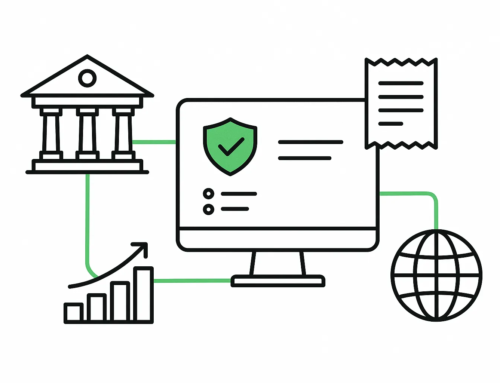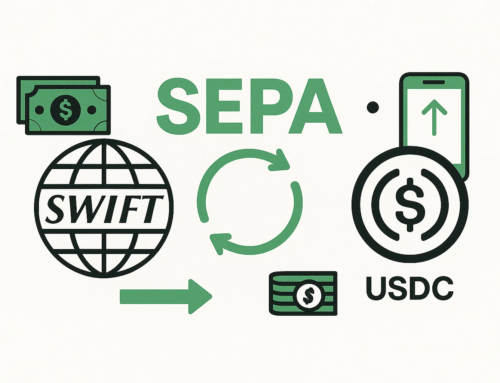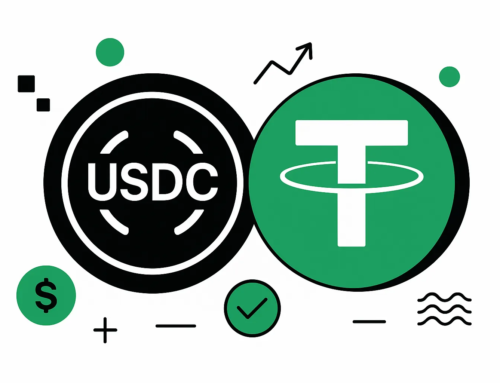The Businesses Banks Don’t Want
Imagine running a fully legal, compliant business—paying your taxes, keeping clean books, and serving customers worldwide—only to wake up one morning to an email from your bank:
“We regret to inform you that we are closing your account. Please withdraw your funds within 30 days.”
No explanation beyond vague references to “risk policy.” No opportunity to appeal. No real alternative offered.
This is the reality for thousands of companies in industries that traditional banks label as “too risky.” We’re not talking about illegal operations, but about legitimate businesses in sectors like eGaming, digital marketing, regulated crypto services, affiliate networks, and even certain fintech solutions.
The irony? Many of these sectors are growing faster than the broader economy, driving innovation and creating jobs. Yet they remain underserved—not because they can’t comply, but because banks choose not to try.
Why Legitimate Businesses Still Get Rejected
The reason often comes down to one word: de-risking.
In response to stricter regulations and increased compliance costs, many banks have adopted a blanket approach—simply avoiding entire sectors they perceive as complex or high-maintenance.
This is driven by:
-
Risk-based profiling – Banks group companies into categories based on perceived threat, rather than actual conduct. If one company in your sector has a bad reputation, you may be treated as guilty by association.
-
Regulatory pressure – Compliance departments face steep fines for AML/KYC failures. For many banks, excluding “problem” sectors feels safer than investing in more nuanced vetting processes.
-
Legacy infrastructure limitations – Traditional banking systems aren’t built to handle the speed, volume, and varied transaction types that many modern digital businesses require—making them less inclined to serve these industries.
The result is a growing group of financially homeless businesses—companies that can’t get or keep accounts despite being fully legal and transparent. For them, the challenge isn’t competition or market demand—it’s simply being allowed to transact.
The Ripple Effects of Account Closures
When a bank account is closed, the impact is immediate and far-reaching. It’s not just an administrative inconvenience—it’s a shockwave that can destabilise an entire business.
Operational Disruptions – Payroll can’t be processed. Supplier invoices go unpaid. Incoming customer payments have nowhere to land. Even a short gap in account access can bring day-to-day operations to a halt.
Reputational Damage – Business partners, affiliates, and investors notice when your payment channels suddenly change. Even if the closure had nothing to do with misconduct, the stigma can create doubts about your stability.
Financial Setbacks – Beyond the lost time, switching providers often comes with higher fees, slower onboarding, and—if you’re forced into less suitable arrangements—higher operational risk.
Legal and Compliance Complications – Frozen funds can create knock-on issues with tax filings, audits, or contractual obligations, sometimes leading to disputes or penalties.
For companies in underserved sectors, account closures aren’t just a speed bump—they can be a make-or-break event.
What “Open-Minded” Banking Really Means
Being open-minded in banking doesn’t mean ignoring compliance or lowering standards. Quite the opposite—it means applying those standards fairly, without resorting to blanket rejections.
At its core, open-minded banking is about:
-
Evaluating on merit – Assessing businesses individually, based on their actual operations, documentation, and compliance track record—not on industry stereotypes.
-
Transparent onboarding – Clear communication about requirements, timelines, and any potential issues, so businesses know exactly where they stand.
-
Balancing compliance with accessibility – Meeting all regulatory obligations without turning risk management into risk avoidance.
In practice, this approach requires the right combination of technology, regulatory expertise, and customer focus. It’s not about being lenient—it’s about being precise.
Fintechs that embrace this philosophy are showing that it’s possible to serve a wider range of businesses safely, efficiently, and profitably, while giving those companies the financial freedom they need to grow.
How Fintech is Filling the Gap
Over the past decade, fintech innovators have stepped in to serve the very businesses that traditional banks have sidelined. Leveraging modern infrastructure and flexible compliance frameworks, these platforms are proving that inclusion and security can coexist.
Open Banking for Inclusion – By connecting directly to customers’ accounts and payment networks through secure APIs, fintechs can process transactions with lower costs and greater transparency. This makes onboarding faster and operations more efficient for businesses that otherwise face high friction.
Specialised Industry Understanding – Instead of applying one-size-fits-all risk rules, fintech providers often have teams who understand the operational realities of sectors like eGaming, affiliate marketing, and crypto. They know the difference between legitimate activity and suspicious behaviour, allowing for more nuanced decisions.
Technology-Driven Compliance – Automated KYC/AML tools, blockchain analytics, and transaction monitoring systems enable fintechs to maintain strict compliance while processing high volumes of payments. This is a key reason why fintech onboarding can be measured in hours rather than weeks.
For underserved businesses, these platforms aren’t just an alternative—they’re often the only viable path to sustainable growth.
Case Studies: Businesses Finding Freedom
Case Study 1: The Marketing Agency Frozen Out
A digital marketing agency working with global clients saw its bank account closed after a risk review flagged one overseas client as “potentially high risk”—despite that client being fully compliant. With only a month to find a replacement, the agency turned to a fintech platform that offered EUR accounts with open banking integration. Onboarding took just 48 hours, and the agency resumed operations without losing clients.
Case Study 2: The Regulated Crypto Company Seeking Stability
A licensed crypto exchange struggled with recurring issues at traditional banks, from sudden account freezes to excessive documentation demands. Partnering with a fintech that was crypto-friendly but compliance-driven allowed the exchange to centralise both customer fiat deposits and operational funds in one dashboard, cutting transfer delays from days to minutes.
Lessons Learned:
-
Speed matters—fast onboarding can save client relationships.
-
Sector knowledge is critical—providers who understand your industry make better, fairer decisions.
-
Integration reduces risk—having all payments in one hub minimises errors and delays.
For both companies, finding an open-minded partner didn’t just solve a banking problem—it unlocked growth opportunities they had been forced to put on hold.
Monetum’s Approach to Open-Minded Banking
At Monetum, we believe that being “open-minded” is not about lowering standards—it’s about raising the bar for fairness and accessibility. Our mission is to give compliant businesses in underserved sectors the financial tools they need to operate without fear of sudden account closures or endless onboarding delays.
What sets our approach apart:
-
EUR Accounts for a Wide Range of Sectors – We serve industries that traditional banks often sideline, from eGaming to digital services, while maintaining strict adherence to Swiss and EU regulatory standards.
-
Open Banking Payments – Direct C2B euro transfers that bypass costly card networks and speed up settlements.
-
Balanced Compliance – We meet every AML/KYC requirement without defaulting to blanket rejections, using technology and expertise to evaluate each client individually.
-
Human Support – Every client gets a dedicated account manager to ensure smooth onboarding and ongoing assistance.
For us, inclusion is not a buzzword—it’s a core operating principle that shapes how we design our services and support our clients.
The Bigger Picture – Why Inclusion Matters
Financial exclusion doesn’t just hurt individual companies—it stifles innovation and economic growth. When compliant businesses are locked out of the banking system:
-
Entire sectors lose competitive momentum.
-
Entrepreneurs are discouraged from starting new ventures.
-
Cross-industry collaboration slows due to payment bottlenecks.
By contrast, when underserved sectors gain access to modern, reliable financial infrastructure, they can:
-
Scale faster and compete globally.
-
Create more jobs and partnerships.
-
Invest in innovation rather than navigating banking obstacles.
Fintech platforms that champion open-minded banking are not only solving immediate operational problems—they’re unlocking economic potential that benefits the entire market.
A More Open Future
In today’s fast-moving economy, the ability to access and manage your money should depend on your compliance and integrity—not the outdated risk perceptions of traditional banks.
Open-minded banking is about fairness, precision, and opportunity. It’s about recognising that legitimate businesses in fast-evolving sectors deserve the same stability and respect as any other. And it’s about creating systems where compliance is rigorous but not exclusionary.
At Monetum, we see this as the future of financial services—one where underserved yet compliant companies have the freedom to grow without banking uncertainty holding them back.
Because when more businesses can participate fully in the financial system, everyone benefits. If you’re ready to bank without barriers and unlock your growth potential, Open your Monetum Business Account today.








